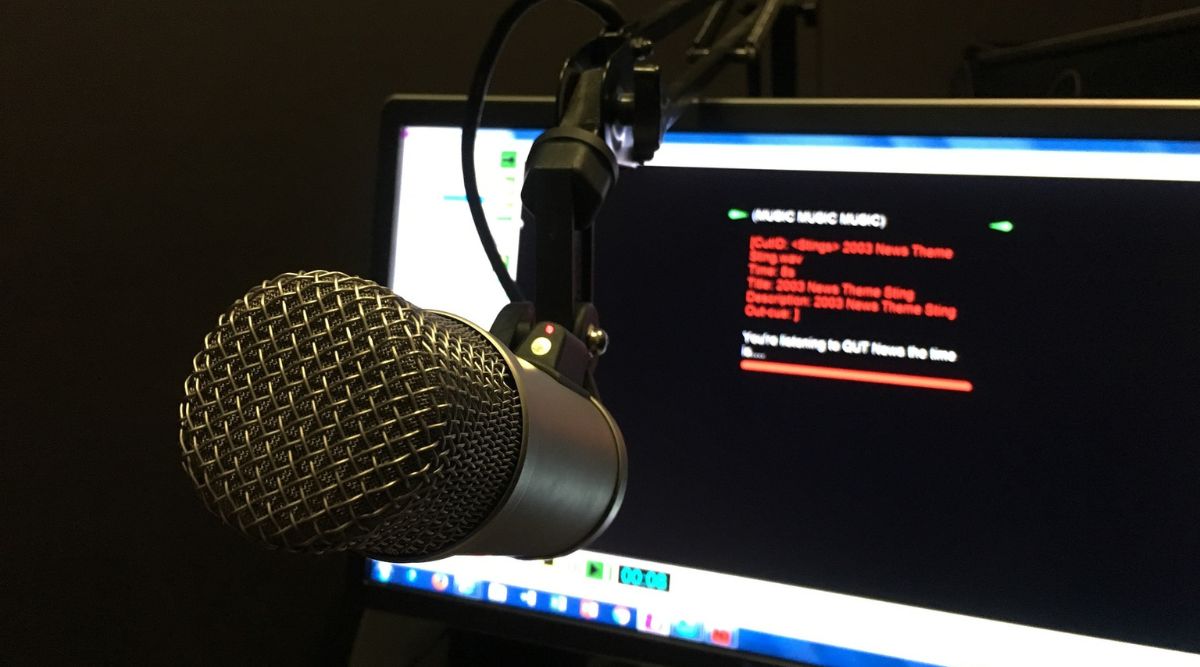
“AI may certainly transform the voice-over profession, but humans will still be needed for creative and emotionally sensitive work,” feels Neha Guglani, a Mumbai-based voice artist. Guglani is among the thousands of professionals working in the voice industry that has been undergoing an existential crisis ever since the introduction of AI-backed voice services.
In 2022, Artificial Intelligence touched several facets of our lives. From market research to smart home integration, businesses around the world have been fostering AI for multitudes of use cases. Regardless of the prevalence of AI, one pertinent question that concerned professionals worldwide was the ebbing away of jobs. The latest occupation that is facing a threat from AI is that of voice actors. With tech companies opting for AI narrators, the voice-over industry is on the cusp of transformation or of potential attrition.
In what could be seen as a catalyst for change, Cupertino-based tech giant Apple recently rolled out AI-generated voice narration in its Apple Books app. The new development saw romance and fiction books in English on the platform get four human-like voices. Apple introduced two voices, Jackson and Madison, in the romance genre, and Helena and Mitchell in the fiction genre. While Apple has unveiled the new technology without much hue and cry, searching ‘AI Narration’ in the app will reveal a long list of audiobooks with AI-generated narration.
The latest development has triggered a spectrum of reactions. Those who foresee an AI takeover of their jobs, in a way, have their fears confirmed; organisations that have been relying heavily on voice actors would see this as an opportunity. It is an opportunity considering that companies investing heavily in audiobooks will no longer have to shell out big money on voice actors.
Apple’s latest technology infuses the voice of human narrators in its latest AI offering. However, according to a review posted on arstechnica.com, the AI-generated narration was human-like, albeit with some anomalies – specifically when it came to intonation. In audiobooks, it is the performance enthused with emotion that captures the reader. While AI-backed narration may be substantially cost-effective, it may not necessarily yield what consumers are looking for. More content at the cost of a dwindling consumer base?
A bustling segment
As of now, Amazon is the biggest player in the audiobook segment. According to tech company ReportLinker, the global audiobook market size is expected to reach around $20 billion by 2028. With its latest introduction, Apple is expected to pave the way for adoption of AI voice services across various platforms and it is likely to have an advantage over Amazon. Considering the market size, there seems to be a sea of opportunities for voice-over artists around the world. However, the latest AI takeover of the voice-overs may spell doom for millions of professionals.
At present, Audible, Audm, Google Aloud, LibriVox, audio drama podcasts offered by streaming apps such as Spotify, Apple Podcasts, are some of the most popular applications that employ voice professionals.

As of now, Audible is one of the biggest players in the audiobook segment. (Image Source: Audible)
“AI-powered audio services could revolutionise voice-over. Text-to-speech (TTS) technology can generate human-sounding speech on computers. However, a growing number of use cases show that TTS can’t reproduce the nuances and complexities of a human voice that voice-over artists may offer to add emotional depth and authenticity to advertisements, films, and video games. When it comes to developing an emotional connection with the audience, many in the industry would want to employ real people to effectively translate the story they’re trying to showcase. AI-backed audio services may certainly transform the voice-over profession, but humans will still be needed for creative and emotionally sensitive work. Personally, I feel it would still have a separate feel, a distinct one even, for a while as the technology advances over time,” says Guglani, who has worked on a slew of podcasts and audiobooks.
Indian voice artists not only operate in the domestic market, many of them also work for overseas companies delivering voices for a wide range of products and services. According to Guglani, outsourced audio content generation is priced somewhere between $25 and $ 30 (Rs 2000-2500) and they are mostly based on subscription models and vary depending on the nature of the work, gender and accents.
However, with AI-audio in the fray, similar voice services could potentially come at as low as one tenth of the price charged by professional voice actors. A report on observer.com showed voice actors in the US are usually charged $1000 and above to narrate a book, while an AI narration would come at around $50 to $100.
In India, the voice over industry is growing at a steady pace. At present, it is dominated by actors, comedians, radio personalities, and even amateurs. With the advent of new technology and the proliferation of home recording studios, it has become easier for people to enter the industry. However, a section of professionals also feel that the introduction of AI will not overshadow the prospects of Indian voice actors.
“With AI voice-overs gaining prominence, the voice-over industry is likely to be impacted negatively. However, if we consider India, the awareness related to AI-backed audio services is considerably low and people will definitely prefer voice actors over AI narrators. Dubbing plays a very important role in the career of a voice actor in India. If we look at dubbing, there is a director, the voice actor, and there is numerous back and forth in communication that shapes the eventual performance. And this, I believe, would be difficult to have in AI as of now considering the variety of languages we have. Moreover, I also feel that when we do ads, audiobooks or dubbing, the spontaneous burst of creativity in terms of expressing emotions would be absent. The change in tenor and ambience can happen quickly when it comes to using voice actors,” says Shiv Kanungo, a voice actor based in Mumbai, who has lent his voice for numerous Hindi-dubbed Hollywood films
Apsara Iyengar, a theatre professional from Vadodara who began her voice-over journey with projects based on IVR services, feels the AI foray into voice-based services will not impair the industry, but would rather pave the way for more possibilities.
“I have been doing voice-overs since 2008. The initial projects that I received were mostly IVR services, from various agencies. However, this drastically changed in the last few years when AI-backed services began to be introduced. Even startups that offered IVRs recorded by artists now offer AI-recorded voices. But what has changed is that I started getting other projects such as digital education or description videos, that required a certain level of explaining and communication. These, as well as various advertisements and dubbing projects have been on demand, creating opportunities for many to explore voice services. Narrators, storytellers, actors will certainly have their jobs because we have that secret ingredient that no bot does: emotion,” says Iyengar asserting that the human voice can never be replaced.
While technology is offering some impressive tools to authors and voice actors to assess their work, the introduction of AI narration signals change. Now, more than ever, voice actors would be required to get better at storytelling. With time, actors will only be able to sustain themselves with their personal brand.
The invention of ChatGPT has shown how close the AI has got to writing a book by itself. Tech experts feel that the next leap will be in the domain of voice-based services. The accuracy and the conformity to modern plagiarism rules seen in ChatGPT is evidence enough to measure the acuity of AI voice-overs in the future. Newer technologies are being introduced to generate voices that offer human-like precision with appropriate intonation. Experts feel that while AI voice-over will be a competitor, it will remain a competitor nonetheless and that there will be ample scope still for voice actors to engage and monetise their skills.


